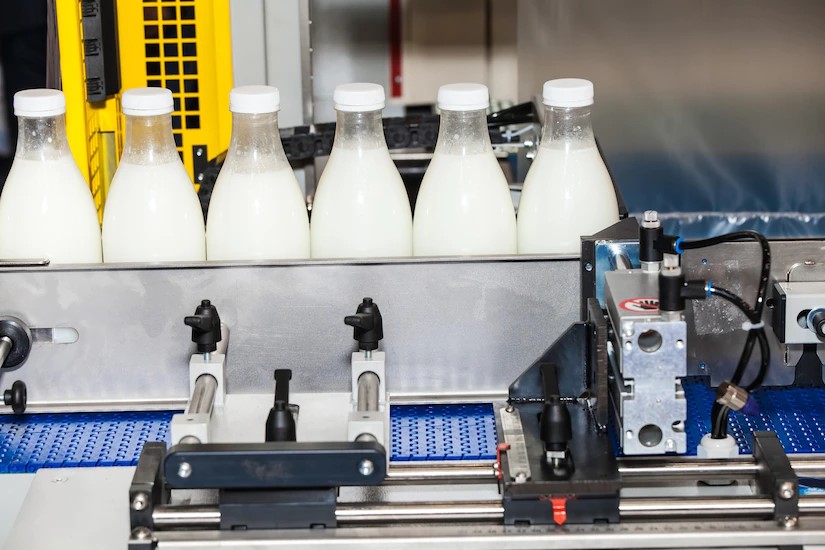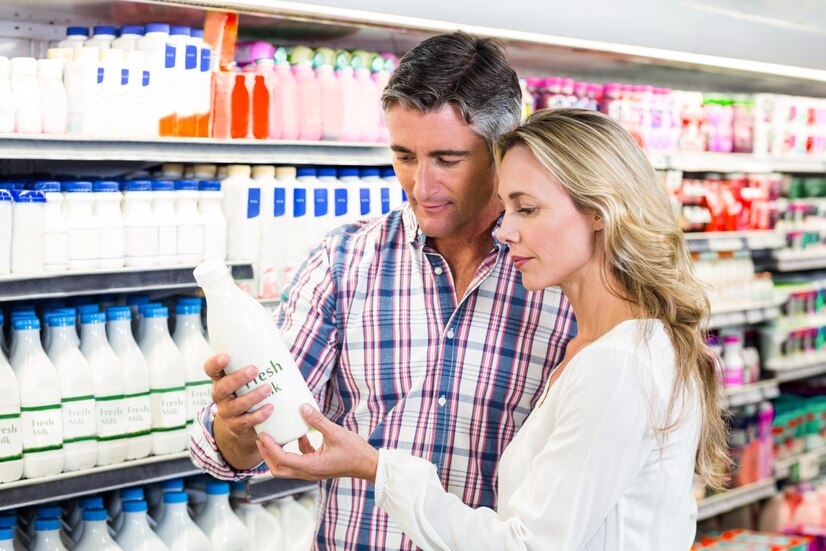Hey folks, this is America – you have the power of the purse.
When cruising down the aisles of the grocery store lined with various
items, remember that those items stay on those shelves only because of supply and demand. Unless it’s a new item, the products are there because you want them.
If no one is buying a product, manufacturers aren’t going to waste their money to produce it. In other words, you control what they make!
Manufacturers have done a good job of leading you in the direction of purchasing what is cost-effective for them. But if you educate yourself, you can buy only from those manufacturers selling pure products. Most of the foods produced have little nutritional value and are extremely addictive.
Wouldn’t it be nice if the product was 100% organic, and GMO-free, animals were raised on pasture, and dairy products were unadulterated? Perhaps we are a way off from those conditions, but we can begin to move in that direction by buying only what is pure.
You have already accomplished a lot!
Before 2008, Some U.S. dairy farms were injecting the genetically engineered hormone rBGH, also called rBST, into their cows to boost milk production.
The use of rBST in dairy cows has been shown to increase the concentrations of IGF-1, a protein naturally found in milk. Though research is mixed on the extent to which dairy consumption is linked to increased cancer risk, higher blood levels of IGF-1 have been linked to increased risk for pre-menopausal breast cancer.

In 2008, U.S. citizens insisted on labeling of milk as “rBGH-free” or “rBST-free.” That battle against Monsanto was won. Now you have a choice! So be sure to purchase products with a label that indicates, “No artificial growth hormones used.” You will see that label on all dairy products that are RH factor free.
On another front, on January 1, 2022, the bioengineered (BE) food labeling law came into full effect. This policy makes the United States – the largest producer of Genetically Modified Organisms (GMOs) in the world – the 65th country with a mandatory GMO labeling policy.
However, federal law is limited and confusing, leaving room for deception. For example, big agriculture can still spray their crops with glyphosate – one of the most widely used herbicides in the U.S. and a cancer-causing agent – after harvest and still call their crops GMO-free.
Genetically Modified Organisms (GMOs) are living beings that have had their genetic code changed in some way in a lab. In the U.S., GMOs are used in the production of corn, soybeans, sugar beets, canola, cotton, alfalfa, potatoes, papaya, summer squash, and a few apple variations.
Most of the GMO crops grown today were developed to help farmers prevent crop loss by making plants resistant to weeds, damaging insects, and certain viruses.
It sounds good on paper, but is genetic engineering safe for humans and the environment? According to our government agencies, they are. But according to many scientific studies, and actual events, they are not.
Dr. Vandana Shiva, organic agriculture and environmental activist and author, named “Environment Hero” by “Time” magazine, reported on what happened when the Bt toxin was put into cotton in India to create herbicide-resistance crops.
The Bt toxin was supposed to control the bollworm, and Monsanto said no spray would ever be needed again. What happened was the bollworm became so resistant, and damaged the Bt cotton crop so badly, that farmers had to spray stronger pesticides, causing 130 farmers to die from pesticide poisoning.
According to The Center for Food Safety, genetically engineered food can cause
allergic reactions, antibiotic resistance, immune suppression, loss of nutrition, and cancer.
Gene editing is being used in animals, and the consequences can be detrimental to humans.
Rather than eat GMO meat, at your farmers’ market, find organic meat from local ranchers who raise animals on pasture. The pasture-raised meats are from free-roaming grass-eating herds, and the real pasture-raised chickens are outside in the grass poking around (they return to their hen houses at night). By buying organic meat, you don’t have to subject yourself to supermarket meats that are mostly from CAFOs (confined animal feedlot operations), filled with hormones and antibiotics.
Even though a lot of the local ranches have been replaced with big agricultural properties, they are making a comeback. Ranches will continue to grow in numbers if they are supported by their communities. Sadly, organic food is more costly, but if unhealthy foods are rejected, organic will become more mainstream and more affordable.
There is a developing movement in healthy food production, and many young people are finding satisfaction in living close to the land and growing their own food.
So, folks, please speak up! Ask your grocery stores to carry local organic produce, which supports local farmers. Reject “fake foods” grown in a lab. Support your local farmers by going to your local farmer’s markets or joining a CSA (community-supported agriculture organization).
Shelley H. Lane, OMD, L.Ac, NTP.




